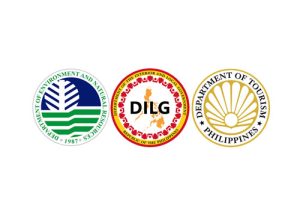 The recent issue at the Chocolate Hills in Bohol highlights the importance of responsible development in protected areas, emphasizing the delicate balance between economic development, sustainable livelihood, and environmental conservation.
The recent issue at the Chocolate Hills in Bohol highlights the importance of responsible development in protected areas, emphasizing the delicate balance between economic development, sustainable livelihood, and environmental conservation.
The preservation of our natural heritage is paramount, and therefore, harnessing the economic benefits of our nation’s resources must be tempered with the duty to uphold the integrity of our protected areas today and for generations yet to come.
Our goal of protecting natural resources encompasses sustainable resource management, biodiversity conservation, maintaining ecological balance, and preserving cultural heritage.
Achieving this starts with identifying the gaps in historical policies and practices and developing a comprehensive and balanced approach at both national and local levels of government. This includes strengthening regulations and monitoring mechanisms, rationalizing land use classification, and enforcing evidence-informed environmental protection according to global environmental standards, while also considering the communities’ needs for livelihood and employment.
For responsible tourism in protected areas, compliance cannot be compromised, and regular monitoring is a must. The Protected Area Management Board (PAMB) resolution allowing development in a protected area does not omit the necessity of obtaining an Environmental Compliance Certificate (ECC), as this is required by law.
In the local government units (LGUs), approval and implementation of management plans can only be effective through balanced and streamlined representation in governing bodies, such as the PAMB. This would include representatives of the relevant national government agencies, scientific experts, expert practitioners, tourism planning officers, the academe, and non-government organizations who actively promote sustainable practices, community engagement, and alignment of tourism development with environmental goals.
Environmental governance is only possible with all stakeholders working together to ensure that our actions do not jeopardize the integrity of our ecosystems and the well-being of our present and future generations.
Together, the DENR, DILG and the DOT commit to strategic collaboration and a holistic approach to achieving a sustainable future for all.
Maraming salamat po.
Maria Antonia Yulo Loyzaga
DENR Secretary
Benhur Abalos
DILG Secretary
Christina Frasco
DOT Secretary












